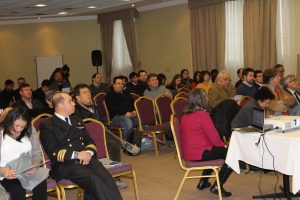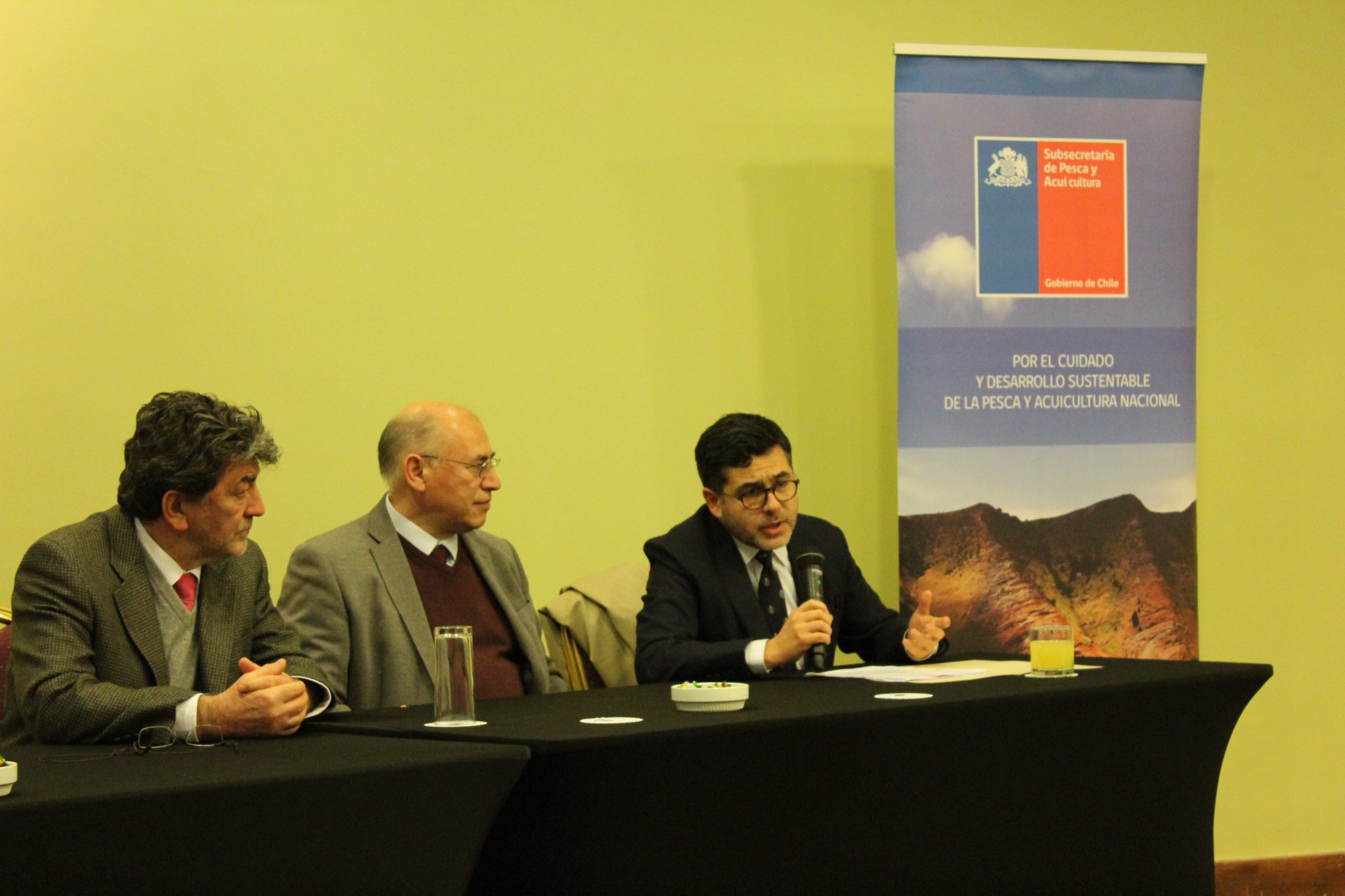First seminar on weather change in fisheries and aquaculture is held by Subpesca
July 7th, 2018
This activity aim was to sensitize and train people in the area regarding effects and the need to incorporate adaptation measures to management of fisheries and aquaculture phenomenon.
More than 50 representatives from fisheries management committees, scientific committees, salmon farmers, mussel farmers, artisanal fisheries and small-scale aquaculture, as well as public services related to the area met yesterday at Hotel Diego de Almagro, in Valparaíso, at a seminar organized by Fisheries and Aquaculture Undersecretariat to internalize them regarding weather change adaptation effects and measures regarding this field.
Chile is the first country in Latin America that has a Fisheries and Aquaculture Adaptation Plan for Weather Change and this activity is part of its execution, therefore this event counts on national field experts, who, from their specificities, were responsible for raising awareness and providing tools to attendees, so that they can incorporate this variable into decisions mmakinf processes in their different areas.
Eduardo Riquelme, Fisheries and Aquaculture Undersecretariat, said he was very pleased with this seminar results in which public administration members, management committees and scientific committees participated to “specifically address the way in which this phenomenon of weather change is linked to decisions taken by public administration, and fundamentally Undersecretariat of Fisheries decisions, which must be taken regarding fisheries and aquaculture “.
The program included Doris Soto Interdisciplinary Center for Aquaculture Research Head, who presented some projections on the area: “predictions in the area anticipate, that around middle of the century, at best, will be a reduction of fishing potential between 2% and 5%; while, in the most dramatic scenario, it will decrease by 7% and 12%. ” Regarding aquaculture, the researcher explained that the impact is less, since there is greater control and the phenomena can cause negative and positive effects “the increase in sea temperature may mean more growth for some species, but the increase in Oceans acidification can hinder the production of molluscs or crustaceans. ”
For his part, Luis Cubillos, University of Concepción researcher, stressed the importance of fisheries and aquaculture adaptation plans implementation, over mitigation, as well as including in an ecosystemic approach, since it is an activity from which many communities depend, so diversification and adaptation is vital for their sustainability.
Claudio Silva, researcher from Universidad Catolica de Valparaíso presented the spatial modeling system of weather change and fisheries; and Ana María Ugarte, CR2 researcher, addressed the issue of governance and the science-policy interface.
Chita Guisado president of the technical scientific committee of benthic resources, was among the attendees, who thanked the institution, although she emphasized the need for other institutions to have been present, especially in education field. She also called for more research regarding benthic resources, since the largest existing work focuses primarily on fish fisheries, especially pelagic fish such as sardines and anchovies.
Luis Parot, IFOP executive director, said that “in parallel and complementary to Fisheries and Aquaculture Undersecretariat initiatives, the Oceanography and Environment Department (Doma) from Fisheries Development Institute (IFOP) is developing a joint project with FAO, called “Interoperable Information System (SDII)”. This system systematizes and integrates data on fisheries, aquaculture and weather change, to generate information for users and decision-making, through a web platform. This site will allow a simple visualization of the information provided by climate change indicators and variables of local conditions for the use of the authority and fishermen.
In this sense, Dr. Jaime Letelier, DOMA’s head , highlighted the efforts that are being carried out to enable free access to systematized and comprehensible environmental information, as well as the design of public contingency and fisheries management policies, which propitiate the scientific progress in understanding the effects of climate change. The above, considering that IFOP is the main generator of oceanographic information in the country. The initiatives of Subpesca and IFOP, he said, are enriched among them, by generating and validating the environmental indicators necessary to monitor the impact of climate change on the coasts of Chile and generate policies for the sustainability of fishing activity.
After the presentations, workshops were held with the assistants, in order to reinforce those learned during the morning. The activity is part of the implementation of the Adaptation to Climate Change in Fisheries and Aquaculture Plan and was organized by the consultancy Acuitechno Ltda.
